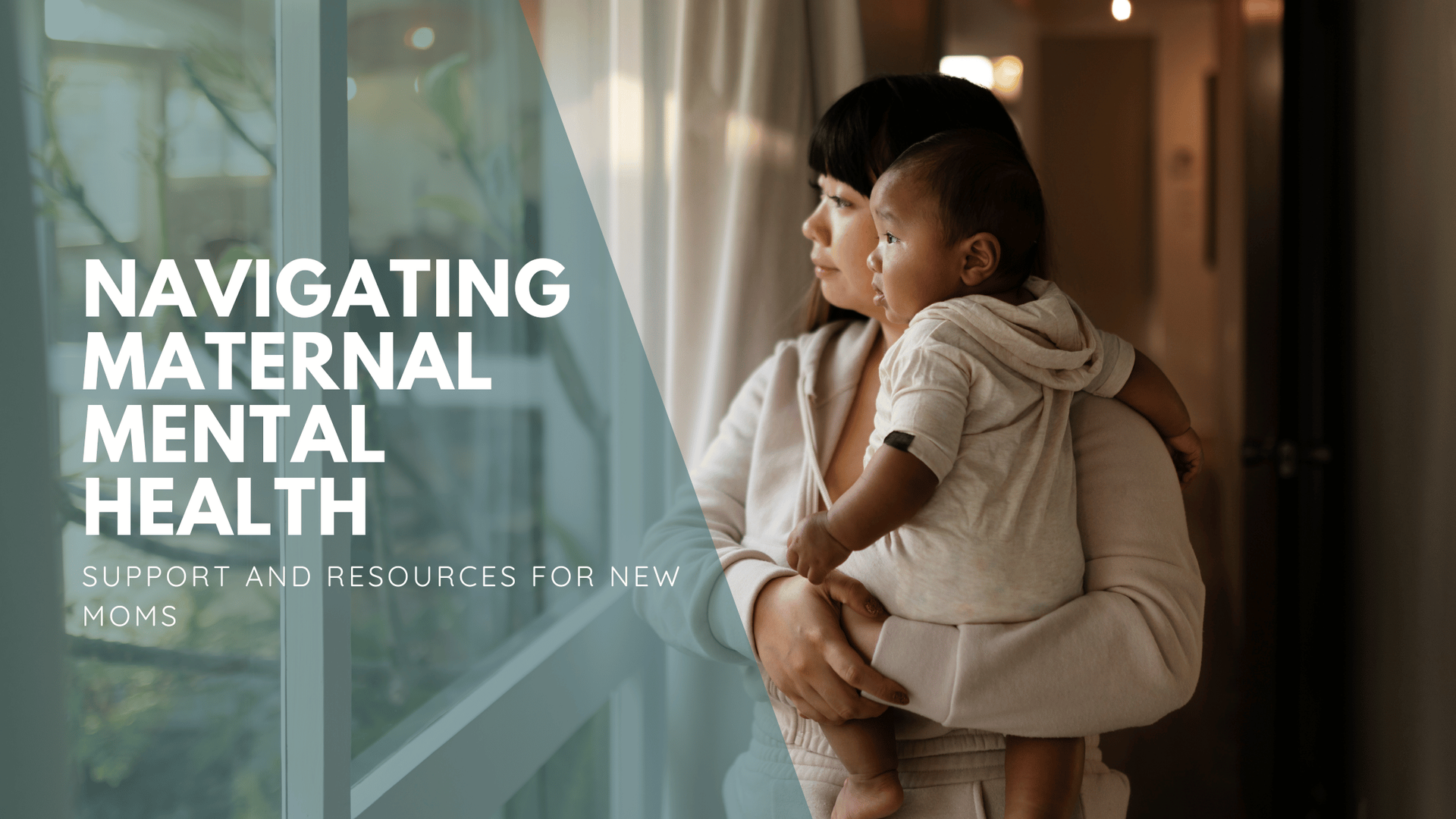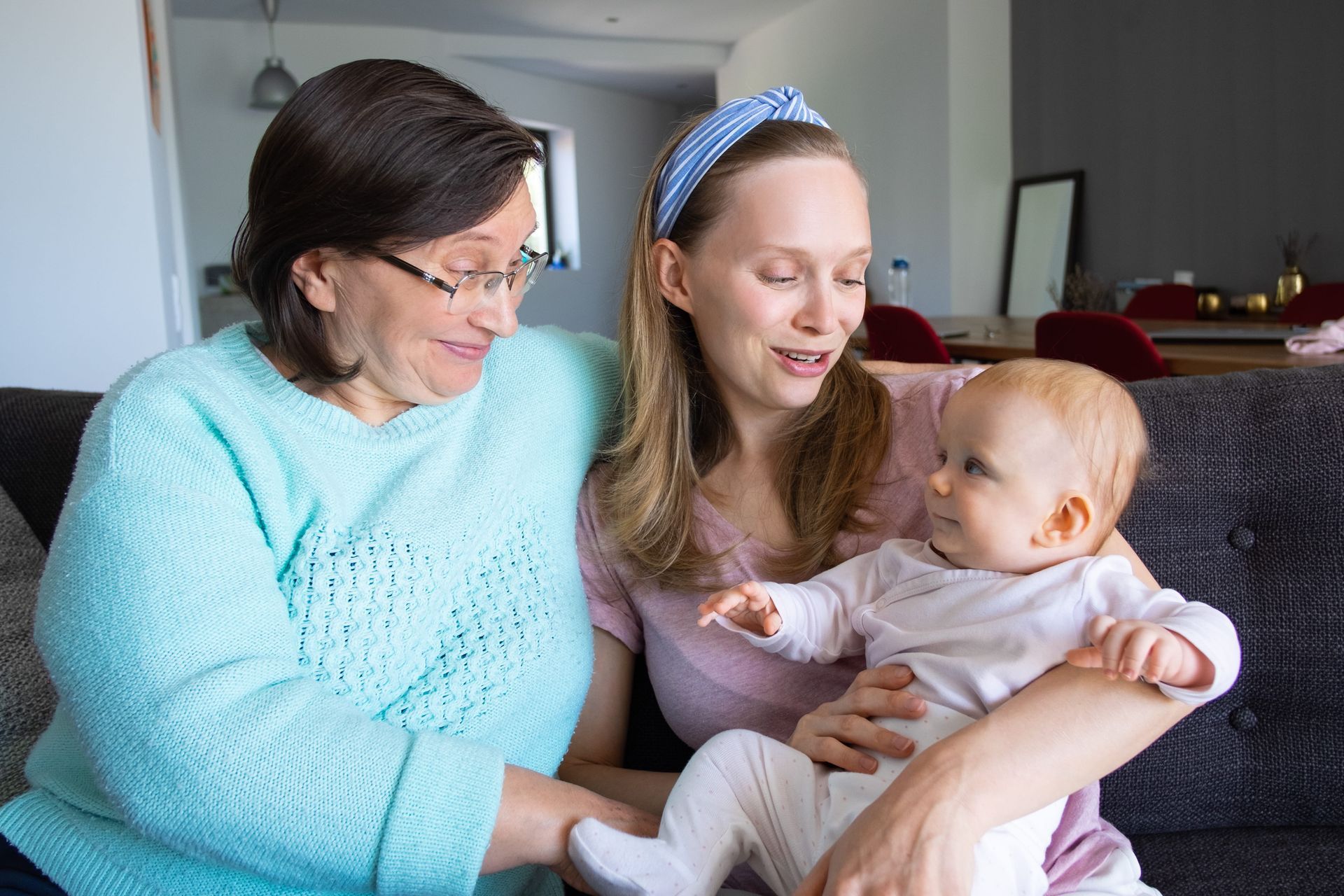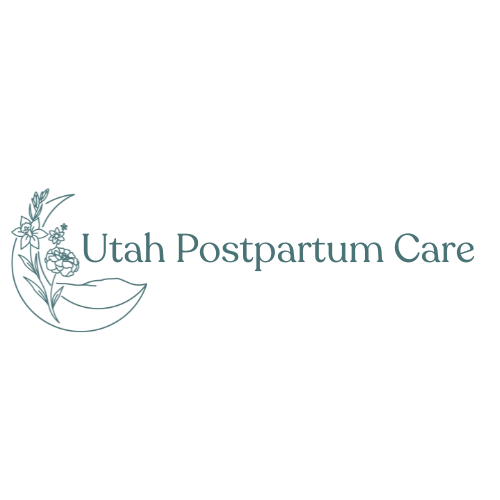Navigating Maternal Mental Health: Support and Resources for New Moms
Navigating Maternal Mental Health: Support and Resources for New Moms

No one talks enough about how loud your thoughts can get when the baby is finally asleep and the house is quiet. If you’ve been feeling anxious, overwhelmed, or unlike yourself in postpartum, you’re not alone, and you’re not failing. Maternal mental health struggles like postpartum depression and postpartum anxiety are far more common than people realize, and you deserve support that actually helps you feel human again.
As postpartum doulas, we see the emotional load new moms carry every single day. And as a mother who experienced PMADS completely undiagnosed and overlooked by my own provider, I want you to know this right away: what you’re feeling matters. You deserve care, validation, and real support, not someone brushing off your symptoms as “normal hormones.”
Let’s talk honestly and gently about maternal mental health, and how to get the help you need.
Understanding Maternal Mental Health in Postpartum
Maternal mental health includes your emotional, psychological, and social well-being during pregnancy and postpartum. It affects how you think, feel, handle stress, bond with your baby, and move through this huge life transition.
Hormonal shifts, lack of sleep, birth trauma, feeding struggles, and the sudden pressure to keep a tiny human alive can make everything feel heavier than you ever expected. Postpartum depression and postpartum anxiety are the most common maternal mental health conditions, but there are others, too, and each one can affect moms in very different ways.
None of these experiences means you’re weak. They mean you’re human.
Recognizing Signs of Postpartum Depression and Anxiety
Some parts of postpartum feel emotional and tender for everyone, but when the emotions become overwhelming or constant, it’s time to take a closer look.
Signs of postpartum depression can include:
- Persistent sadness or numbness
- Feeling disconnected from your baby
- Loss of interest in things you used to enjoy
- Guilt, shame, or thoughts that you’re not a good mom
- Trouble eating, sleeping, or functioning
Postpartum anxiety often looks like:
- Racing thoughts that will not slow down
- Constant worst-case scenarios
- Trouble sleeping even when baby is asleep
- Feeling tense, wired, or on edge
- Physical symptoms like headaches, nausea, or a tight chest
If you’re experiencing any of these signs, please know this: you are not alone, and help exists.
My Personal Experience
When I was deep in my own postpartum struggles, I didn’t have language for what I was feeling. I didn’t know that intrusive thoughts, panic, constant dread, and emotional numbness were symptoms of PMADS. I went to my primary care provider looking for help and was dismissed and told everything was normal.
It wasn’t.
What I needed was a perinatal mental health therapist. I needed someone who understood postpartum, understood trauma, and understood the emotional weight mothers carry in those early weeks. Getting the right support was life-changing, and it’s part of why I advocate so strongly today for maternal mental health and trauma-informed postpartum care.
If this feels familiar, please hear me: what you’re feeling is real, and you deserve support.
How Postpartum Doulas Support Maternal Mental Health
You do not need to wait until things feel unmanageable before reaching out. Postpartum doulas are trained to support the emotional, physical, and mental well-being of new mothers in a compassionate, judgment-free way.
Here’s how we help:
Emotional support that feels safe
We sit with you in the messy, raw moments without rushing you or minimizing your feelings.
Practical support to lighten the load
When someone else is cooking, cleaning, caring for the baby, or helping with feeding, your nervous system finally gets space to breathe.
Education that reduces fear
Knowing what’s normal and what’s not brings clarity and confidence.
Referrals to trusted professionals
We work closely with
perinatal mental health therapists,
IBCLCs,
craniosacral therapists, and community resources so you always have the right support team.
You deserve to feel held while you heal.
Practical Ways to Support Your Mental Health Postpartum
Every mom’s healing looks different, but here are gentle steps that truly help:
- Set realistic expectations and focus on one thing at a time
- Take slow, grounding walks or sit in the sun for a few minutes
- Ask for help without apologizing
- Eat nourishing meals and stay hydrated
- Limit comparison by unfollowing accounts that make you feel inadequate
- Give yourself permission to rest
Your mental health matters just as much as your baby’s needs.
Trusted Resources for Maternal Mental Health
You don’t need to do this alone. There are incredible resources available both in Utah and online.
Online and National Support
Postpartum Support International (PSI): Free online support groups and a helpline
National Maternal Mental Health Hotline: Call or text 1 833 943 5746
PSI support groups for dads, moms, birth trauma, feeding struggles, NICU parents, and more
Trusted Utah Providers
Anj Lineback with
Ripple Effect Counseling
Betty Flores with
Perinatal Wellness
Jessica Allred with
Treat Counseling
All of these professionals offer trauma-informed mental health care and support for postpartum depression, postpartum anxiety, birth trauma, and PMADS.
You Deserve Support, Not Silence
Maternal mental health challenges don’t make you a bad mom. They make you a mom who is navigating one of the biggest transitions of her life. You are allowed to ask for help. You are allowed to struggle. You are allowed to feel everything you feel.
And you do not have to do any of this alone.
If You Need Support, We’re Here
At Utah Postpartum Care, our postpartum doulas provide emotional support, newborn care, feeding help, rest support, and guidance for navigating postpartum anxiety or depression. We work alongside your therapist or help you connect with one if you’re not sure where to start.
If you want gentle, trauma-informed postpartum support that puts your emotional well-being first, reach out anytime. We’re here to walk beside you with compassion, warmth, and real solutions so you can heal, rest, and feel like yourself again.
You deserve that.
You always have.











